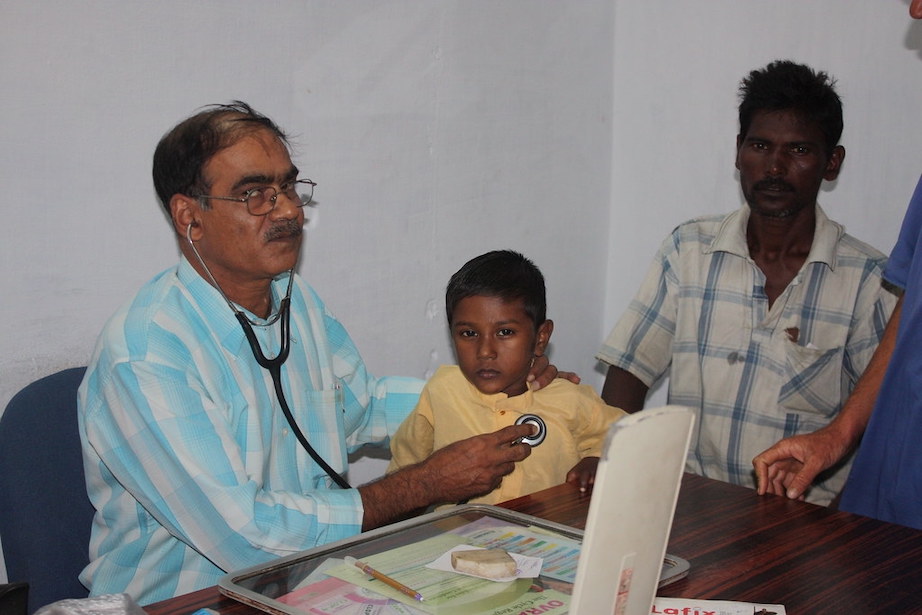When it comes to public health, the pharmaceutical sector stands at a critical juncture—uniquely positioned not only as a provider of medicines but as an active architect for healthier societies. Corporate Social Responsibility (CSR), once treated as a charitable afterthought, is being transformed into a comprehensive approach that is fundamentally redefining how we think about healthcare delivery across India’s villages.
It’s being powered by a simple acknowledgment: a business’s long-term viability is directly tied to the health of the communities it depends on.
In rural India, more than 60% of hospitals, 75% of dispensaries, and 80% of physicians are many miles away from most people. Providing timely and affordable care is one of our nation’s most significant public health issues. Women face even greater obstacles because of cultural practices, the scarcity of female healthcare practitioners, and the expense and time involved in travel.
Set against this, there is now a new pharma CSR paradigm unfolding—one that has progressed beyond standalone philanthropy efforts and one-off health camps to building sustainable, scalable health systems.
The best programmes today address the underlying causes of poor health outcomes, from a lack of infrastructure and gaps in preventive care to basic needs that affect health like clean water, sanitation, and nutrition.
Mobile Medical Units (MMUs) are a powerful example. By bringing doctors, diagnostic equipment, and essential medicines directly to villages, these units provide preventive screenings, maternal and child health services, basic treatments, and referral pathways for serious conditions.
Similarly, CSR-funded infrastructure upgrades (from dialysis machines and laparoscopic surgical tools to entire hospital wards) enable rural healthcare centres to deliver specialised services, which would otherwise be out of reach. In some regions, nutrition interventions such as fortified mid-day meals have improved both school attendance and children’s health, breaking cycles of malnutrition passed from parent to child.
These initiatives are most effective when undertaken in collaboration with local authorities.
Collaborative ventures between pharma corporations, NGOs, and government institutions have set up rural blood banks, deployed mobile cancer screening units, and established low-cost hospitals in neglected districts. Not only do such collaborations pool resources, but they also foster trust at the community level, which can prove imperative for promoting preventive health-seeking behaviour.
The most forward-thinking CSR programmes also invest in building local skills. Training Accredited Social Health Activists (ASHAs), ANMs, anganwadi workers, and community health volunteers ensures that knowledge and care continue even after a project ends. These trained local workers become the first point of healthcare—one that lasts, is easy to reach and is trusted by the community.
The convergence of these CSR efforts with India’s public health vision is impressive. They align with the objectives of the National Health Policy, Ayushman Bharat’s universal access commitment, and United Nations Sustainable Development Goal 3: healthy lives and well-being for all at all ages. When measured in real-world outcomes—reduced maternal mortality, increased immunisation coverage, earlier detection of chronic conditions—pharma CSR proves itself as a powerful catalyst in India’s healthcare ecosystem.
To fully close the rural healthcare gap, pharma CSR must shift from short-term initiatives to sustained commitments. Long-term projects—spanning five to ten years rather than single-year cycles—build genuine trust with communities and create lasting change.
Alongside this commitment, we must prioritise prevention as much as treatment, embrace technology like telemedicine to extend our reach, and ensure we’re truly serving the most remote populations. Equally important is the need to measure and publish outcomes, creating transparency and inspiring replication across the sector.
In the end, redefining rural healthcare is less about dispensing medicine and more about dispensing dignity, opportunity, and life itself. By strategically positioning CSR in support of their mission, pharmaceutical companies can leverage the best of private sector efficiency with the rigor of public policy—making healthcare in rural India not an exception, but an expectation for all citizens.
Views of the author are personal and do not necessarily represent the website’s views.

Author of the above article Ms. Uma Chigurupati is the Executive Director of Granules India Limited, having co-founded Triton Laboratories in 1984 with her husband Dr. Krishna Prasad Chigurupati, which evolved into Granules India in 1991. A post-graduate in Soil Microbiology from Nagarjuna University, she spearheads Corporate Social Responsibility at Granules, focusing on skill development and community health initiatives. She is a former Chairperson of FICCI FLO Hyderabad..


